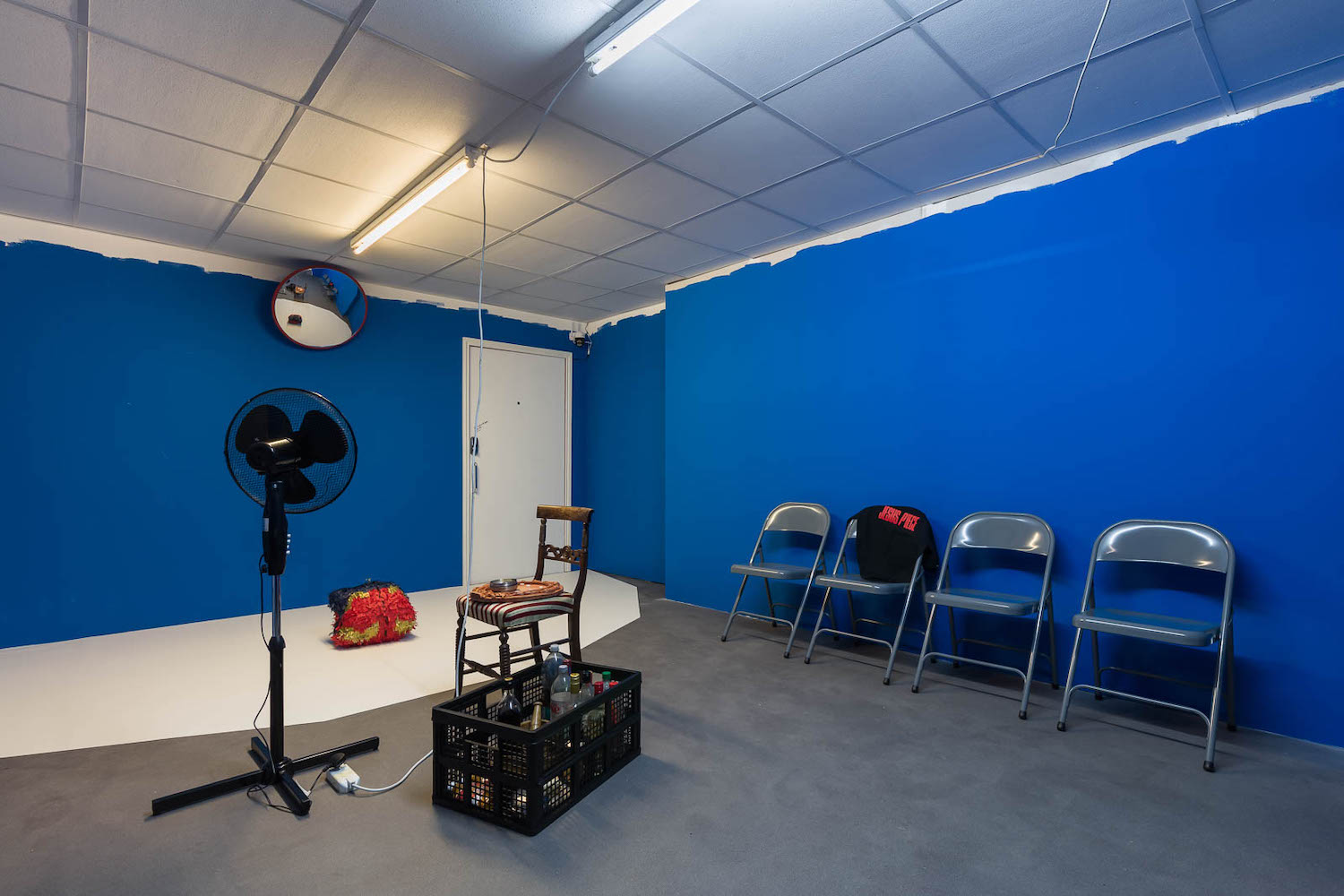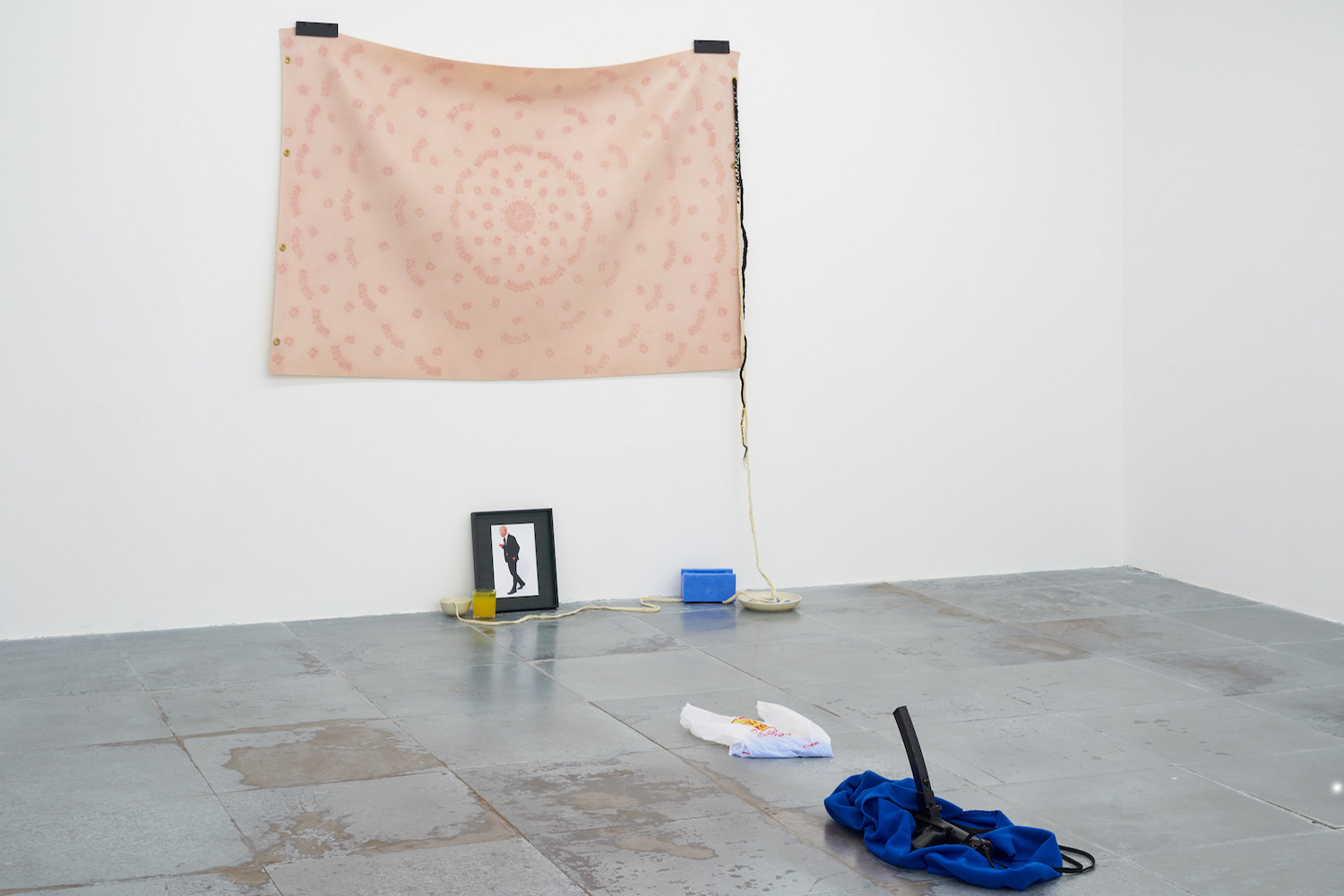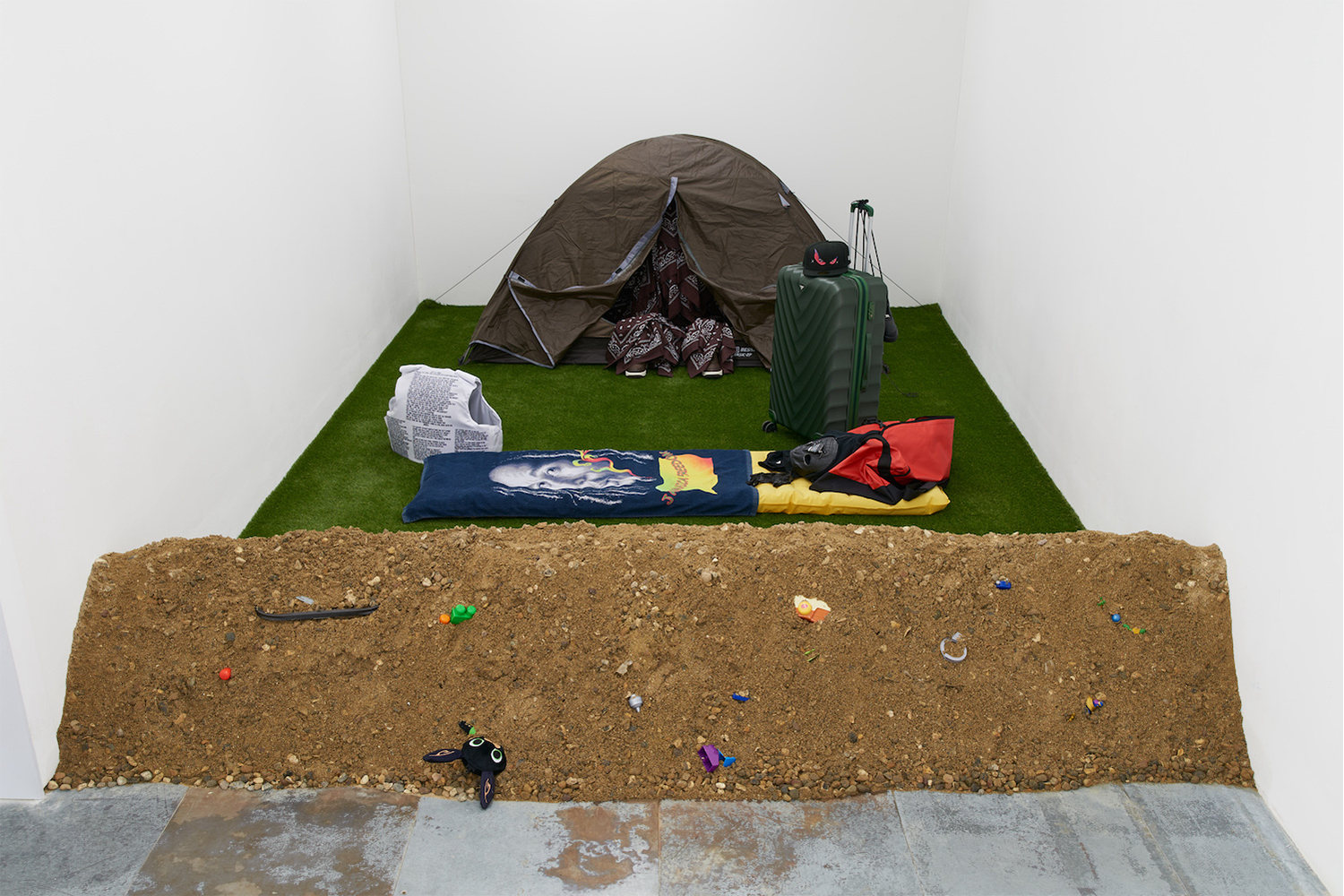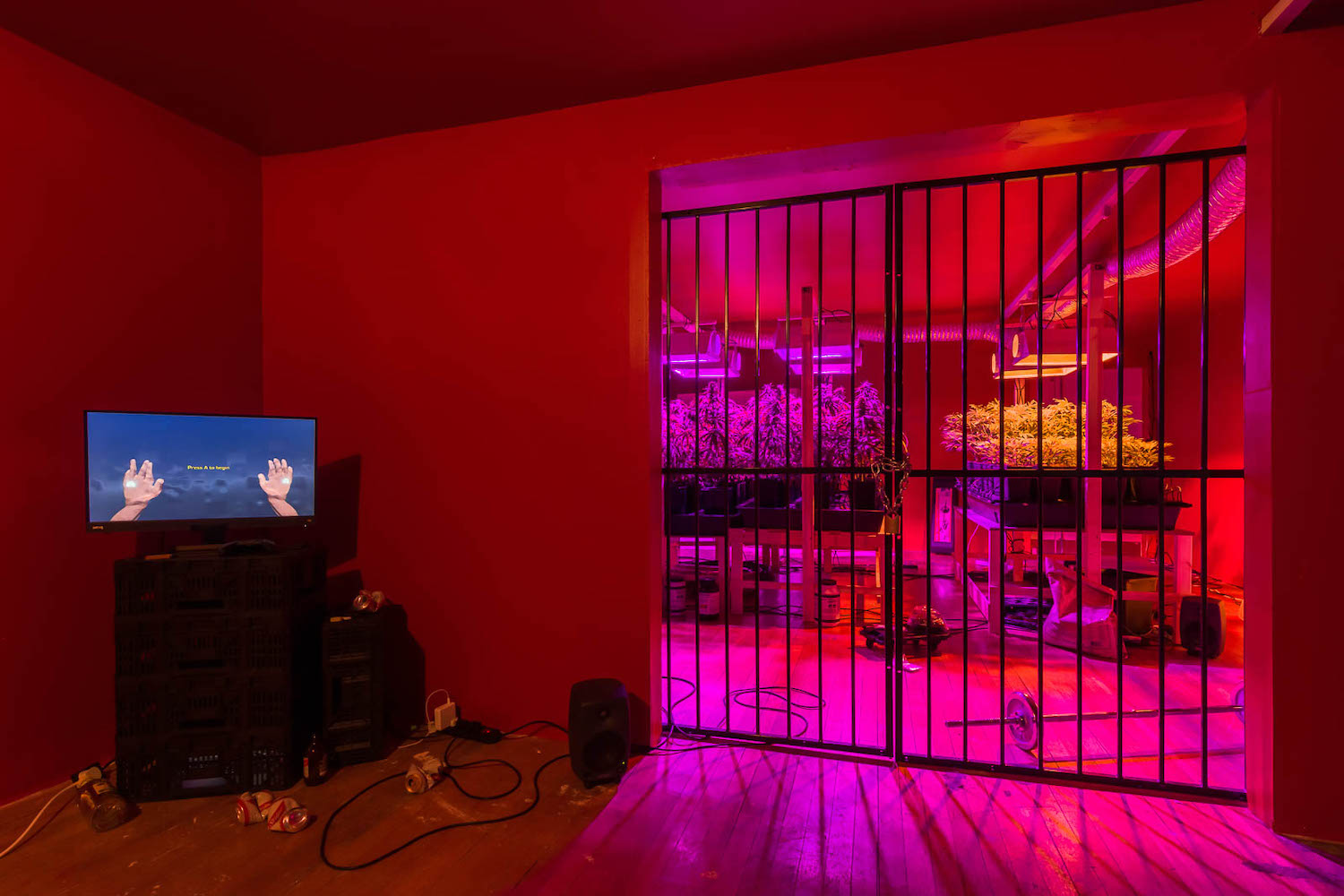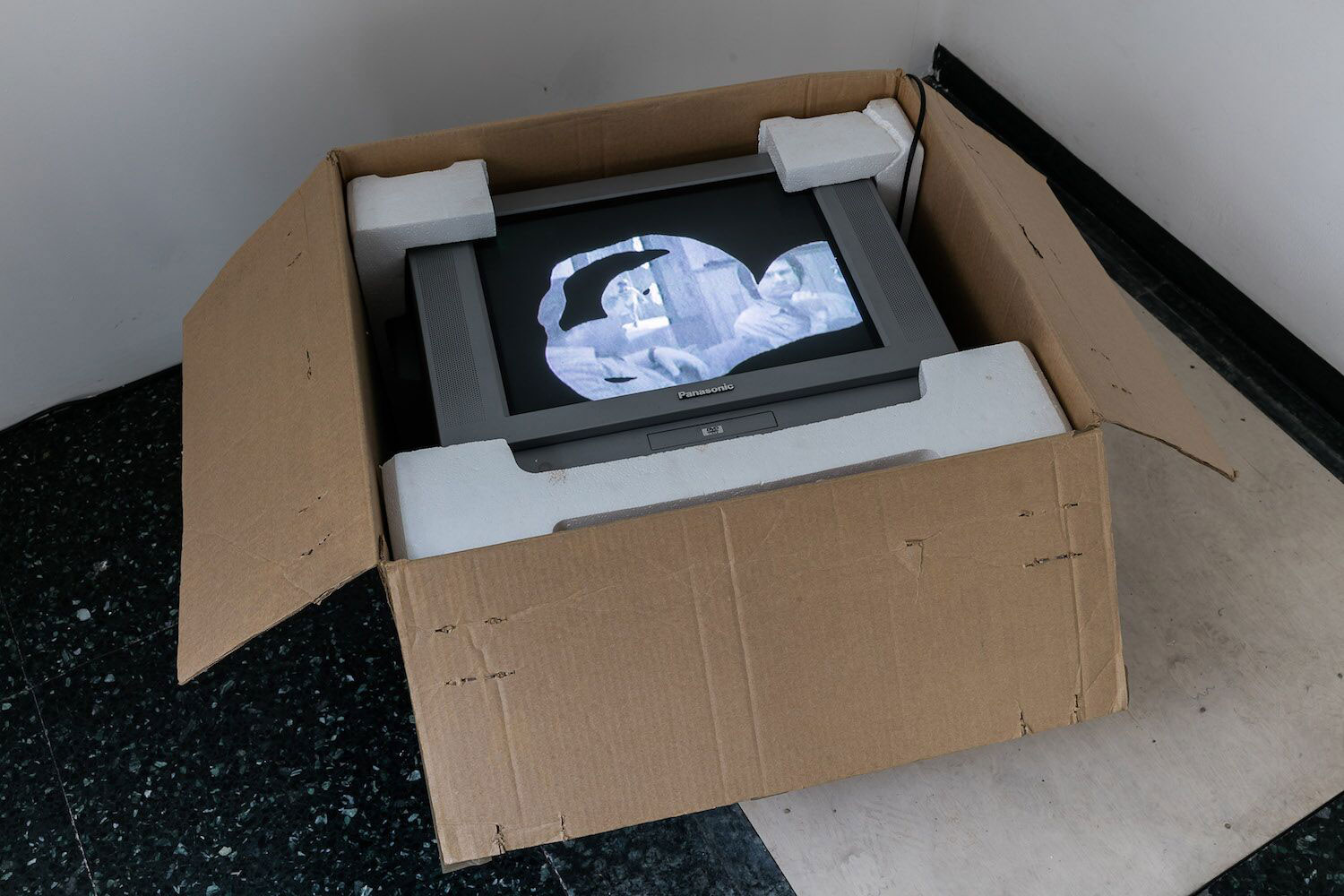R.I.P. Germain’s exhibition “Jesus Died For Us, We Will Die For Dudus!” features an ambitious newly commissioned, immersive, multipart installation that examines the complex logic of cultural gatekeeping within Black culture, and the (mis)perception of these dynamics in a wider (white) world. This exhibition continues the ICA’s commitment to supporting artists in the early and pivotal stages of their careers, and forms part of a year-long 75th Anniversary program.
For “Jesus Died For Us, We Will Die For Dudus!”, the artist has developed a pair of hyper-real installations that resemble familiar retail environments for the Lower and Upper galleries, showcasing two distinct worlds that share parallel mechanics.
One explores the tensions and enticements of a niche of Black culture – a statement jewellers catering to high net-worth clientele. The second represents a so-called peep hole – a false front retail space that disguises a drug operation. Both are ‘baggy spaces’ (a term coined with the writer Helen Starr), lawless or quasi-lawless spaces that exist in all cities that serve social functions and have distinct formal properties that allow them to operate legibly for those in the know, and yet remain under the radar.
The architecture and the objects that populate the installations build an immersive and convincing simulacrum of these real-world spaces that are little known beyond their spheres of immediate significance. Connected through notions of commerce and commodity as well as stereotypical Black identity, both spaces are matryoshka-like, with outer, publicly accessible layers that enfold the inner layers normally only accessible to a select few. The high-end jewellers’ V.I.P. room is accessible to those with wealth; the inner sanctum of the peep-hole requires a different kind of capital, namely cultural know-how. In the gallery, however, we are all permitted to access the inaccessible – able to move through these otherwise highly managed and securitized retail spaces.
Seeking to limn the complex and opaque boundaries of these worlds, “Jesus Died For Us, We Will Die For Dudus!” offers a critical look at structures of consumption, but also an architecture through which to consider the objectification and consumption of Blackness itself, often elided in white discourse, which assumes a flattened plane of access for Black people to all aspects of Black culture.



